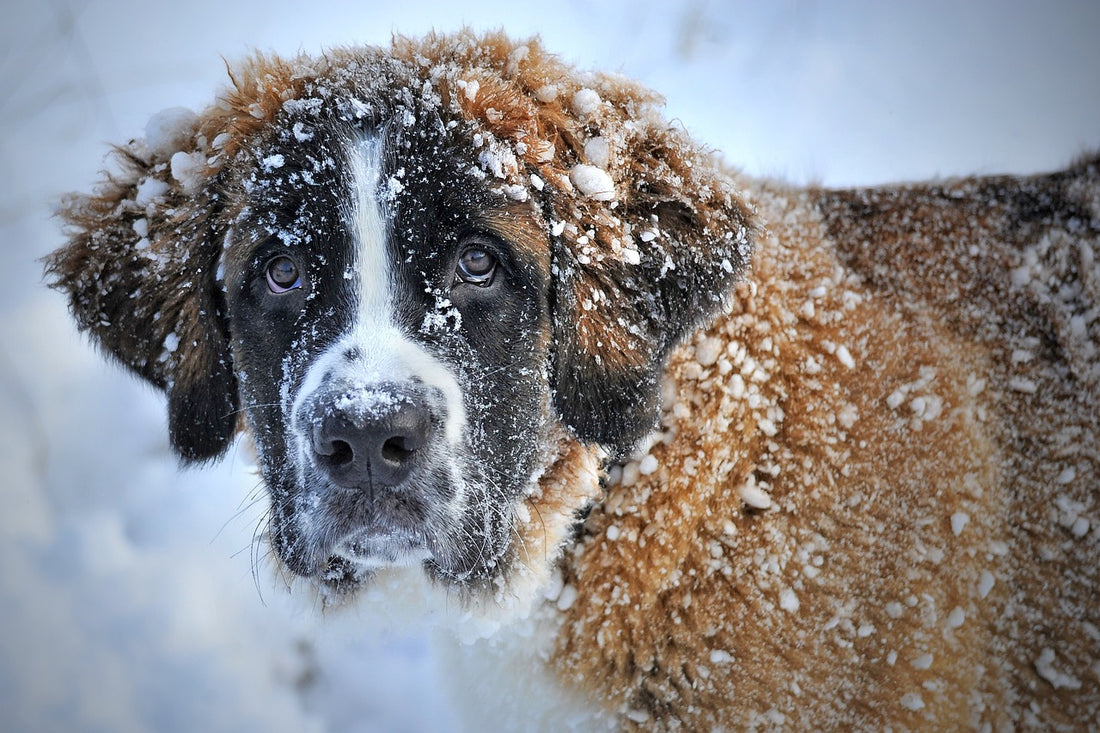
How the Cold Impacts Dogs and Safety Precautions You Should Take
Share
As winter sets in and temperatures drop, it's essential to remember that our four-legged friends, our beloved dogs, are also affected by the cold weather. While some dog breeds may be more tolerant of chilly conditions than others, it's crucial to take precautions to ensure your pet's safety and well-being during the cold months. In this blog post, we'll explore how the cold can impact dogs, including those who love it like Huskies, and discuss essential safety precautions to keep your furry companions warm and happy.
Understanding How Cold Affects Dogs
-
Temperature Sensitivity:
- Just like humans, dogs vary in their tolerance to cold weather based on factors like breed, size, age, and coat type.
- Smaller dogs, puppies, and senior dogs are generally more sensitive to the cold.
- Breeds with shorter fur or less body fat may also feel the cold more intensely.
-
Some Dogs Love the Cold:
- Some dog breeds, like Huskies, Malamutes, and Bernese Mountain Dogs, have evolved in cold climates and are well-equipped to handle winter weather.
- For these breeds, winter can be a time of boundless energy and excitement as they relish the opportunity to frolic in the snow and pull sleds.
Safety Precautions for Cold Weather
-
Hypothermia:
- Prolonged exposure to cold weather can lead to hypothermia in dogs, which is a dangerous drop in body temperature.
- Symptoms of hypothermia include shivering, lethargy, weakness, and pale gums.
- Severe hypothermia can be life-threatening, causing unconsciousness and organ failure.
-
Frostbite:
- Dogs can get frostbite on their extremities, like ears, tails, and paws, when exposed to extremely cold temperatures.
- Frostbitten areas may appear pale, gray, or hard to the touch.
- Frostbite can lead to tissue damage and require veterinary care.
Safety Precautions for Cold Weather
-
Dress Them Up:
- Consider getting a winter coat or sweater for your dog, especially if they have short fur.
- Make sure the clothing fits comfortably and covers their chest and belly.
-
Limit Outdoor Time:
- Reduce the time your dog spends outdoors during extremely cold weather.
- Shorten walks and outdoor playtime to prevent overexposure.
-
Keep Them Dry:
- Moisture can make the cold even more unbearable for dogs.
- Dry them off thoroughly after walks, especially their paws and belly.
-
Provide Shelter:
- If your dog stays outdoors, ensure they have proper shelter.
- Insulated dog houses or heated pads can help keep them warm.
-
Paw Protection:
- Consider using booties to protect your dog's paws from cold pavement and ice.
- Salt and de-icing chemicals can be harmful, so wash their paws after walks.
-
Maintain a Healthy Diet:
- Dogs may need more calories in the winter to maintain their body temperature.
- Consult your vet to adjust their diet if necessary.
-
Be Mindful of Antifreeze:
- Antifreeze is toxic to dogs and has a sweet taste that can attract them.
- Keep it out of reach and clean up any spills promptly.
-
Warm Bedding:
- Provide a warm, cozy bed indoors for your dog to snuggle in.
- Heated blankets or beds are also available for added comfort.
-
Regular Exercise:
- Maintain a regular exercise routine to keep your dog active and warm.
- Consider indoor activities like fetch or puzzle toys on extremely cold days.
Taking precautions to protect your dog from the cold is not only essential for their comfort but also for their health and safety. Understanding how cold weather affects dogs and implementing safety measures like appropriate clothing, shelter, and dryness will help ensure that your furry friend stays warm and happy throughout the winter months. Remember, your dog relies on you for their well-being, so make sure they're well-prepared for the chilly season ahead!